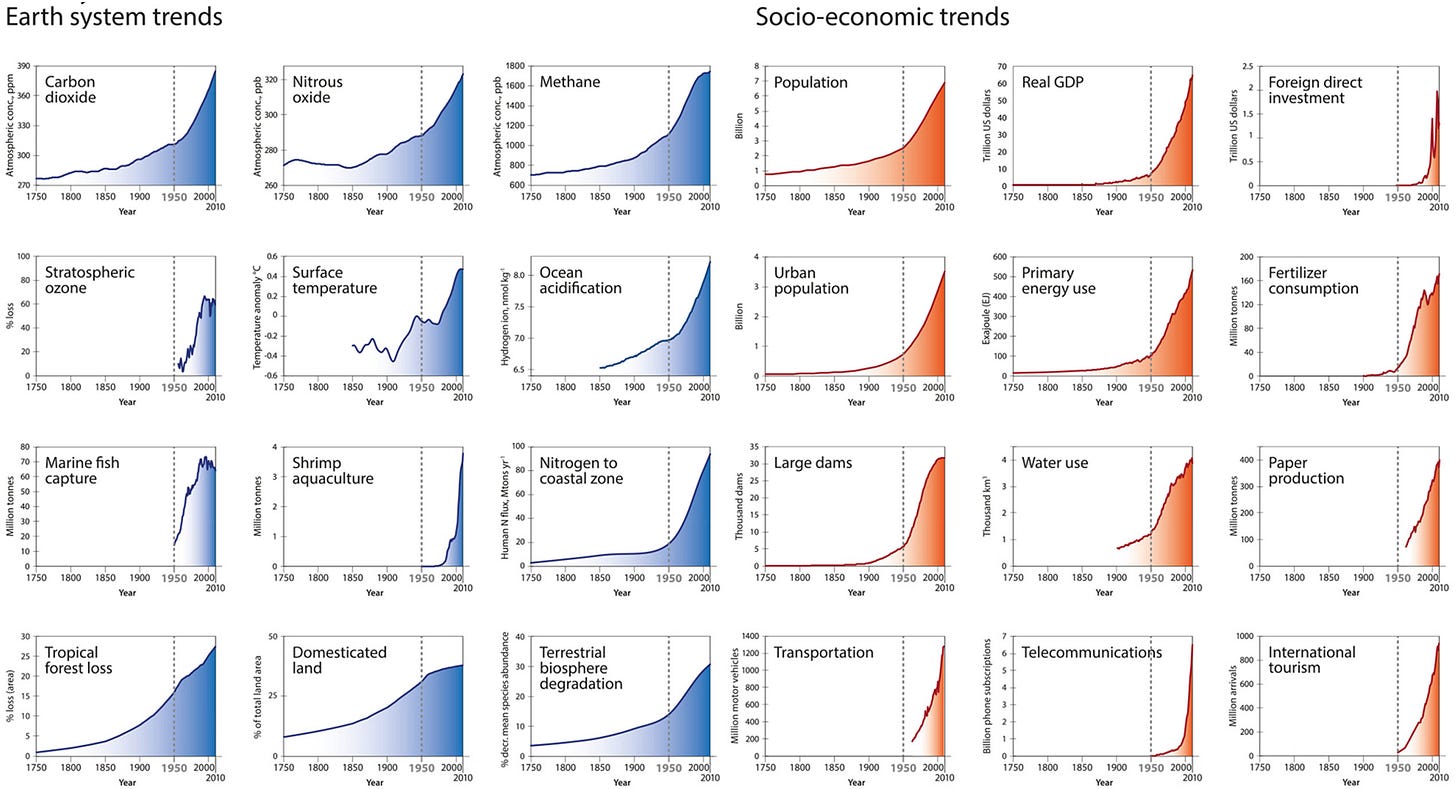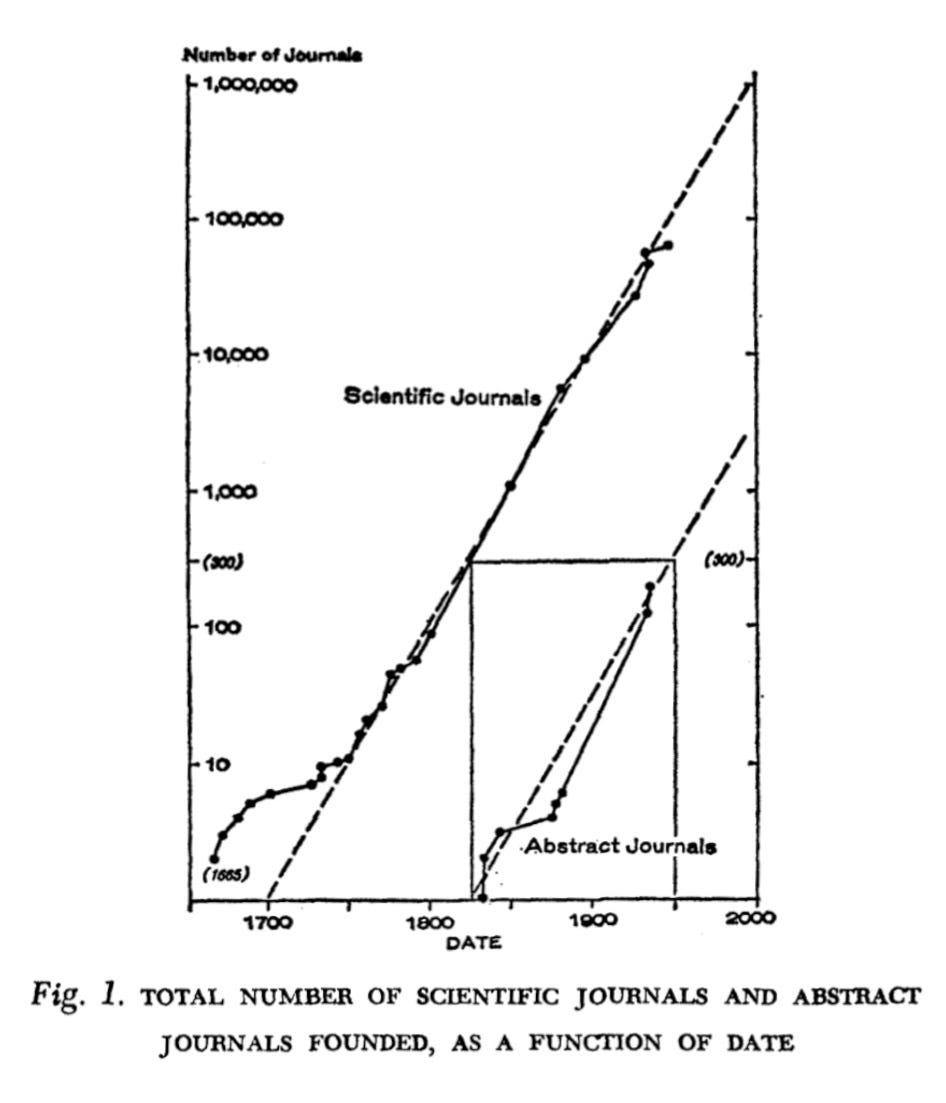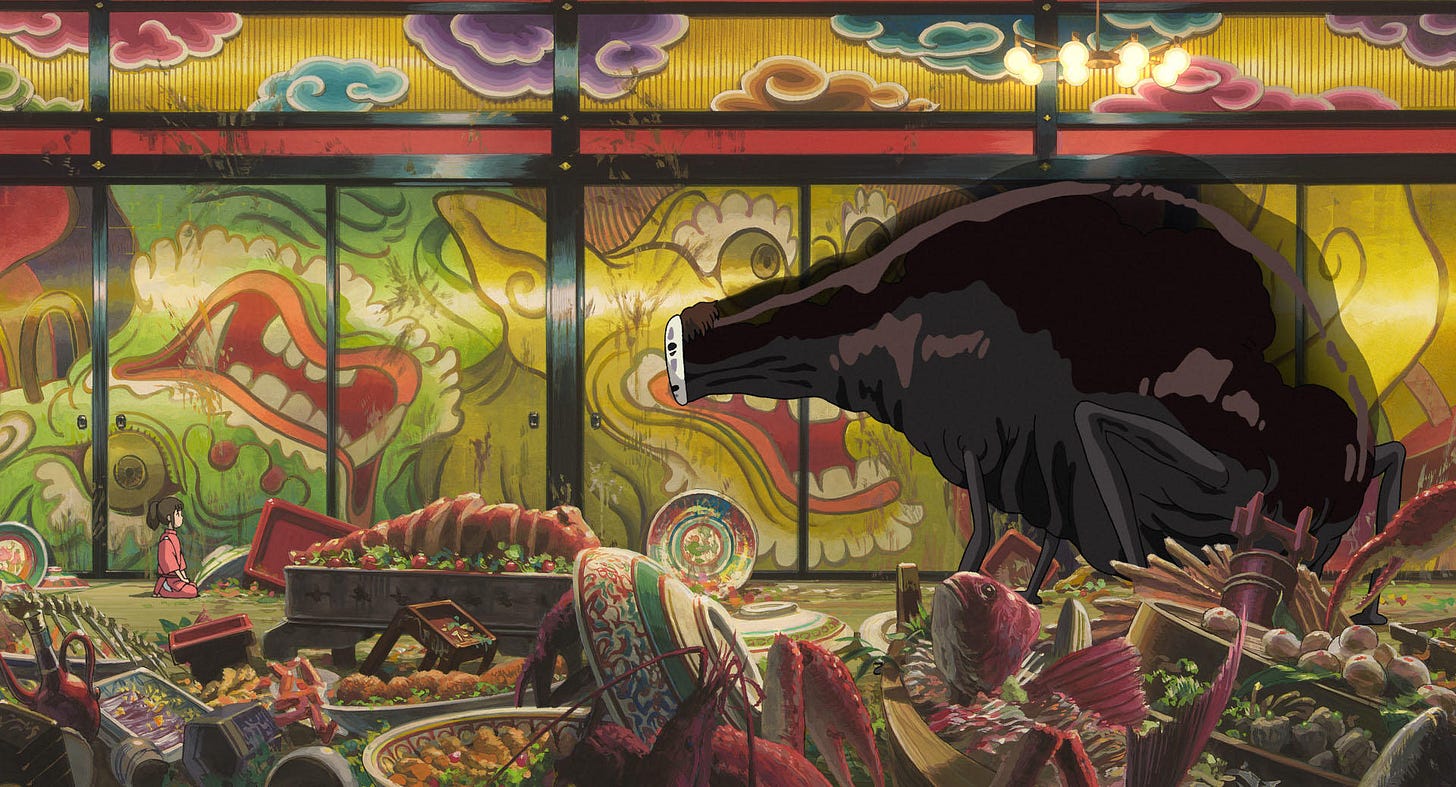Continuing the conversation with Pete Chambers, this time recorded in-person during a trip to Australia in February 2024. Donald Horne famously described the country as ‘a lucky country run mainly by second rate people who share its luck.’ That depiction could easily be applied to much of the West over the last few decades.
Central to our conversation is the issue of scale, prompted by a rare interview with Vaclav Smil. In his book Size, Smil writes:
there is nothing new about this trend toward larger sizes: the evolution of living organisms has supplied many precedents. What’s new is the ubiquity and the pace of the modern quest for larger sizes. This accelerated trend began during the latter half of the 19th century, powered by industrialization, and its intensification through the 20th century created our modern world of record-breaking sizes and superlatives.
We think through logics of consumption, transport, travel as they get scaled up and expanded, conditions in which ‘quantity has a quality all its own’. One of the clearest visualisations of this is the ‘great acceleration’ graphs presented by Steffen et al (2015):
In his 1963 book, Little Science, Big Science, Derek J. de Solla Price tracked and projected a similar kind of trajectory in the realm of research:
Scientists and engineers are now a couple of percent of the labor force of the United States, and the annual expenditure on research and development is about the same fraction of the Gross National Product. It is clear that we cannot go up another two orders of magnitude as we have climbed the last five. If we did, we should have two scientists for every man, woman, child, and dog in the population, and we should spend on them twice as much money as we had. Scientific doomsday is therefore less than a century distant.
Considering these intertwined logics of over-production and over-consumption, Pete offers another quote from Jean Baudrillard, this time from The System of Objects (1968):
Our 'technological' civilization, as foreshadowed by the American model, is a world at once systematized and fragile. The system of objects is the embodiment of this systematization of fragility, of ephemerality, of the ever more rapid recurrence of the repetition compulsion; the embodiment of satisfaction and disillusion; the embodiment of the problematical exorcism of the real conflicts that threaten individual and social relationships. With the advent of our consumer society, we are seemingly faced for the first time in history by an irreversible organized attempt to swamp society with objects and integrate it into an indispensable system designed to replace all open interaction between natural forces, needs and techniques. The principal basis of this system would appear to be the official, obligatory and supervised demise of the objects that it comprises: a gigantic collective 'happening' whereby the death of the group itself is celebrated through the euphoric destruction or ritualistic devouring of objects and gestures. Here again one could argue that nothing more is involved than an infantile disorder of the technological society, and attribute such growing pains entirely to the dysfunctionality of our present social structures - i.e. to the capitalist order of production. The long-term prospect of a transcendence of the whole system would thus remain open. On the other hand, if something more is involved than the anarchic ends of a production system determined by social exploitation, if deeper conflicts in fact play a part - highly individual conflicts, but extended onto the collective plane - then any prospect of ultimate transcendence must be abandoned for ever. Are we contemplating the developmental problems of a society ultimately destined to become the best of all possible worlds, or, alternatively, an organized regression in the face of insoluble problems? Is all this the work of anarchic production relations or of the death instinct? What, in short, has made a civilization go wrong in this way? The question is still open.
A powerful representation of mindless, empty consumption taken to extremes is the figure of No-Face (カオナシ kaonashi) from Spirited Away (image care of Studio Ghibli):
Some further points of reference:
Peter Chambers, ‘Capitalism delivers the goods’ and ‘Containment as one dimensionality’, Living Together, Somehow, February 2024.
Gabriele Vogt and Sian Qin, ‘Does Japan dread or desire its influx of international tourists?’, East Asia Forum, 4 December 2023.
Joseph Cotterill, Claire Jones and Martin Arnold, ‘China to export deflation to the world as economy stumbles’, Financial Times, 9 February 2024.
Julie Turkewitz, ‘Migrants Become Influencers on Social Media’, New York Times, 20 December 2023.
Cory Doctorow, ‘“Enshittification” is coming for absolutely everything’, Financial Times, 8 February 2024.
This conversation is an attempt to reflect on the scale and consequences of these dynamics, and to do so while continuing the ongoing practice of open thought.














